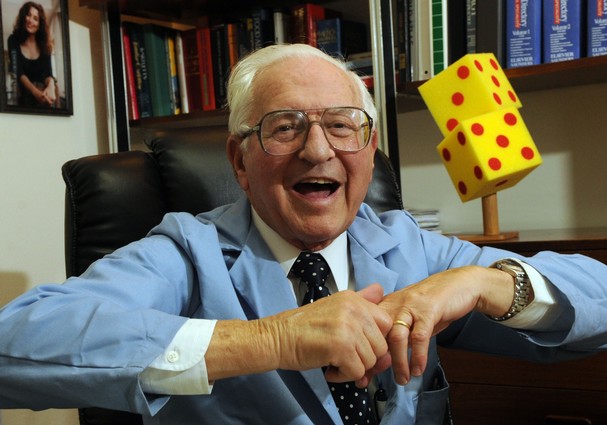Knuckle Head

If you crack your knuckles, you’ll develop arthritis — or so the old wives’ tale goes. But is it true? That is not the easiest thing to figure out. Asking arthritis sufferers if they were compulsive knuckle crackers may help, but it has its flaws. Correlation may hint at a causal connection, but there are plenty of other factors which could explain the data. Coming up with a clean test case is difficult because you would need to isolate a large amount of other factors and, because arthritis develops over a long period of time, do so over many years. Decades, really.
So Dr. Donald L. Unger of California, pictured above, did just that.
Unger, at a young age, was warned not to crack his knuckles, lest he harm himself in the future. Almost all of that advice was coming from laypeople, and the medical community did not yet have a grasp on whether it was true. So Unger tackled the problem himself.
For fifty years, Unger cracked the knuckles on his left hand “at least twice a day,” as reported by Scientific American. But he did not, intentionally, do the same with his right hand. Over the course of those five decades, Unger estimates that he cracked the knuckles on his left hand over 36,000 more times than those on his right. He then wrote up his results. In 1998, it was published in a medical journal, Arthritis & Rheumatism, in an article titled “Does knuckle cracking lead to arthritis of the fingers?,” which is available here. The short answer to his rhetorical question? No. “There were no arthritis in either hand, and no apparent difference between the two hands,” he wrote in his paper.
For his trouble, Unger received an honor from the Annals of Improbable Research, a scientific humor magazine. The organization gives out ten “Ig Nobel Prizes” each year meant to highlight “research that makes people laugh, then think,” per its official website. And, more importantly, his findings are probably correct. Over the course of his fifty years of investigation, others came up with more traditional tests — drawing the same conclusion.
Bonus fact: What causes the popping sound from a cracked knuckle or joint? We don’t know. The most likely explanation is something called cavitation, which occurs when small bubbles form within liquids (in this case, synovial fluid) and for some reason, collapse rapidly. In this case, the theory goes, when you flex your fingers or other body parts, you create enough pressure to cause the bubble to collapse, leading to a snapping sound.
From the Archives: Fandemonium: Knuckle cracking doesn’t cause arthritis, and fans do not cause death. But that second part is controversial in South Korea.
Related: “The Ig Nobel Prizes 2: An All-New Collection of the World’s Unlikeliest Research” by Marc Abrahams. 4.3 stars on 5 reviews.
Image via VCStar.com

Leave a comment